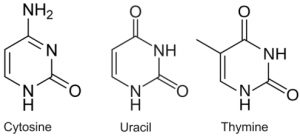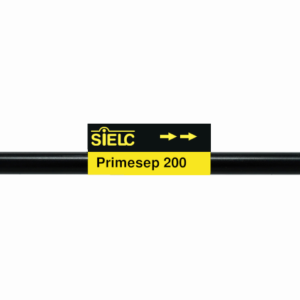Applications:
HPLC Application for Separation of Nucleotide Bases Uracil, Thymine, Guanine, Cytosine, Adenine on Primesep 200 Column
December 6, 2007
Nucleotide bases are parts of DNA and RNA. Adenine and guanine are purine-bases; uracil, thymine and cytosine are pyrimidine-bases. In the view of chromatography these compounds are very polar and similar in properties. It is hard to obtain base line HPLC separation on traditional C18 as peaks of nucleotide bases co-elute even at low organic concentration. In this application nucleobases are well retained and separated on Primesep 200 mixed-mode column. Compounds are retained by weak reverse phase and weak ion-exchange mechanisms. This HPLC method can utilize UV, ELSD, and LC/MS detection.
| Column | Primesep 200, 4.6*250 mm, 5 µm, 100A |
| Mobile Phase | MeCN/H2O – 10/90% |
| Buffer | TFA – 0.2% |
| Flow Rate | 0.5 ml/min, 1.0 ml/min |
| Detection | UV, 270 nm |
| Class of Compounds |
Drug, Acid, Hydrophilic, Ionizable, Hormone |
| Analyzing Compounds | Uracil, Thymine, Cytosine, Guanine, Adenine |
Application Column
Primesep 200
The Primesep family of mixed-mode columns offers a wide variety of stationary phases, boasting unprecedented selectivity in the separation of a broad array of chemical compounds across multiple applications. Corresponding Primesep guard columns, available with all stationary phases, do not require holders. SIELC provides a method development service available to all customers. Inquire about our specially-tailored custom LC-phases for specific separations.
Select optionsCytosine
Guanine
Purines
Pyrimidines
Uracil




